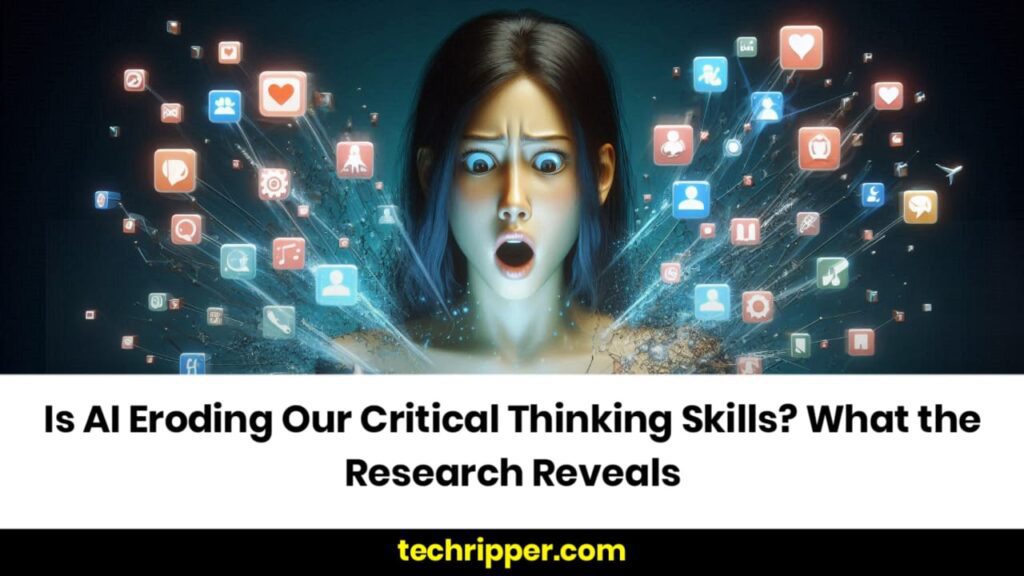Artificial intelligence tools like generative AI are revolutionizing the way we work, but at what cost? A recent study conducted by researchers from Microsoft and Carnegie Mellon University sheds light on a concerning trend: overreliance on AI may be dulling our critical thinking skills.
The study, which surveyed 319 professionals who use generative AI at least once a week, reveals that when people depend too heavily on AI, their cognitive efforts shift from higher-order thinking—such as creating, evaluating, and analyzing information—to merely verifying whether an AI’s output is “good enough.” This shift, the researchers argue, can lead to the deterioration of essential cognitive faculties.
“Used improperly, technologies can and do result in the deterioration of cognitive faculties that ought to be preserved,” the paper states.
When workers only intervene when AI outputs are insufficient, they miss out on routine opportunities to practice judgment and strengthen their “cognitive musculature.” This leaves them unprepared for situations where AI fails or produces subpar results.
How Are People Using AI at Work?

Participants were asked to describe how they use generative AI in three main categories:
- Creation : Writing formulaic emails, drafting reports, or generating content.
- Information : Researching topics, summarizing long articles, or extracting key insights.
- Advice : Seeking guidance, making charts, or solving problems based on existing data.
For each task, respondents were asked whether they applied critical thinking skills and if using AI increased or decreased their effort to think critically.
The Confidence Gap
About 36% of participants reported using critical thinking skills to mitigate potential negative outcomes from AI-generated content. For instance:
- One participant used ChatGPT to draft a performance review but double-checked the output to avoid accidentally submitting something inappropriate.
- Another edited AI-generated emails to align with cultural norms around hierarchy and age.
- Many verified AI responses by cross-referencing them with general web searches, such as YouTube or Wikipedia—a process that sometimes negates the time-saving benefits of using AI in the first place.
However, not all users were equally vigilant. The study found that participants who expressed confidence in AI tended to exert less critical thinking effort compared to those who trusted their own abilities.
“Potential downstream harms of GenAI responses can motivate critical thinking, but only if the user is consciously aware of such harms,” the researchers noted.
The Risk of Overreliance
While the researchers stop short of declaring that AI makes us “dumber,” they emphasize that overdependence on generative AI tools can weaken our capacity for independent problem-solving. When we rely on AI to think for us, we risk losing the mental agility needed to tackle complex challenges when AI falls short.
Key Takeaways
To harness the benefits of AI without compromising our cognitive skills, the study suggests:
- Understanding the limitations of AI tools.
- Actively engaging in critical thinking, even when using AI-generated content.
- Balancing reliance on AI with opportunities to practice independent problem-solving.
As AI continues to integrate into our workflows, it’s crucial to strike a balance between leveraging its capabilities and preserving our own cognitive strengths. After all, technology should enhance our abilities—not replace them.
Also Read : OpenAI Expands to Germany with New Munich Office

